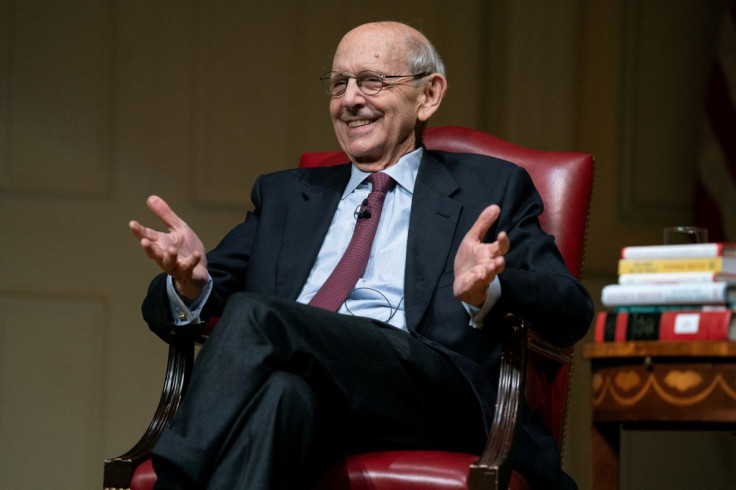U.S. Supreme Court's Breyer Will Officially Retire On Thursday

Liberal U.S. Supreme Court Justice Stephen Breyer will officially retire on Thursday, paving the way for President Joe Biden's appointee Ketanji Brown Jackson to be sworn in to the lifetime position to replace him, the court said on Wednesday.
Breyer, 83, has served on the court since 1994 and announced his plans to retire in January. He will retire at noon (1600 GMT) on Thursday shortly after the court issues the last of its rulings of its current term. Jackson is set to become the first Black woman to serve on the nation's top judicial body.
"It has been my great honor to participate as a judge in the effort to maintain our Constitution and the Rule of Law," Breyer said in a letter to Biden.
Jackson's confirmation by the U.S. Senate on April 7 marked a victory for Biden, who has sought to infuse the federal judiciary with a broader range of backgrounds.
Breyer, the court's oldest justice, often found himself in dissent on a court that has moved ever rightward, including last Friday when its conservative majority overturned the constitutional right to abortion recognized in the landmark 1973 Roe v. Wade ruling. That decision upheld a Mississippi ban on abortion after 15 weeks of pregnancy.
Breyer also dissented in another major ruling last week when the court's conservatives endorsed for the first time a right under the U.S. Constitution to carry a handgun in public.
After announcing his retirement, Breyer spoke at an event at the White House.
"People have come to accept this Constitution and they have come to accept the importance of the rule of law," Breyer said, holding a copy of the 18th century foundational document in his hand.
© Copyright Thomson Reuters {{Year}}. All rights reserved.





















